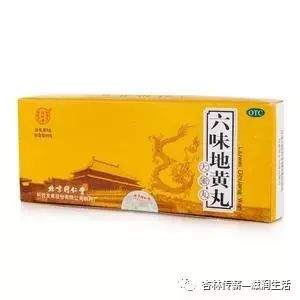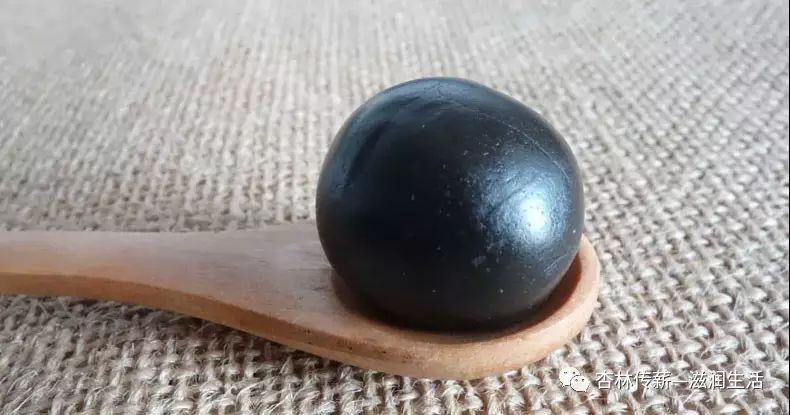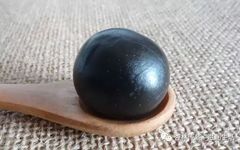 Pills, known to everyone, account for about 80% of the traditional Chinese medicines encountered in pharmacies or hospitals, such as the well-known Liu Wei Di Huang Wan (Six-Ingredient Rehmannia Pill) for treating kidney yin deficiency, Shen Ling Bai Zhu Wan (Ginseng and Atractylodes Pill) for spleen deficiency, and Bu Zhong Yi Qi Wan (Tonify the Middle and Augment the Qi Pill), among others. But do you really understand pills?
Pills, known to everyone, account for about 80% of the traditional Chinese medicines encountered in pharmacies or hospitals, such as the well-known Liu Wei Di Huang Wan (Six-Ingredient Rehmannia Pill) for treating kidney yin deficiency, Shen Ling Bai Zhu Wan (Ginseng and Atractylodes Pill) for spleen deficiency, and Bu Zhong Yi Qi Wan (Tonify the Middle and Augment the Qi Pill), among others. But do you really understand pills?
Pills are made by crushing medicinal substances or preparing extracts of certain herbs, then adding suitable binders to form spherical solid dosage forms, thus creating traditional Chinese medicine pills. Compared to decoctions, pills are absorbed more slowly. They have a prolonged effect, save on medicinal materials, and are convenient to take and carry.
The ancient physician Li Dongyuan once said, “Pills are slow; they treat in a gentle manner.” They are suitable for the recovery and stabilization phase of chronic and deficiency-related diseases. Due to their mild action, they are generally not used for conditions where patients have obvious discomfort symptoms and are eager for immediate relief. Therefore, when some patients ask if they can take Chinese medicine pills, I usually respond that after your condition stabilizes, you can take some Chinese medicine pills to consolidate the effect, but initially, it is necessary to use decoctions or powders for adjustment.
Common types of pills include honey pills, water pills, paste pills, and concentrated pills.
Honey pills are made by crushing medicinal substances and using refined honey as a binder. Honey pills are soft in nature, have a mild and lasting effect, and can tonify and improve taste, commonly used for treating some deficiency-related diseases with long-term use.

Water pills, commonly known as water-dissolved pills, are sometimes referred to in prescriptions as water pills. They are made by using water (cold boiled water or distilled water) or alcohol, vinegar, etc., as binders to form small pills from finely powdered herbs. Water pills dissolve and disperse faster than honey pills, are absorbed and take effect quickly, and are easy to swallow, suitable for various diseases. Most pills on the market that are not labeled as honey pills belong to this category.
Paste pills are made by crushing medicinal substances and using rice paste, flour paste, etc., as binders to form small pills. Paste pills have a strong binding force, are hard in texture, dissolve and disperse slowly, and can prolong the effect when taken internally, reducing the adverse reactions of some highly toxic herbs and irritation to the gastrointestinal tract.
Concentrated pills refer to pills made from the concentrated decoction or extract of herbs combined with suitable excipients or finely powdered herbs. They are characterized by their small size, ease of use, and good efficacy, while also being easy to store and having a long shelf life. However, concentrated pills are made through decoction, and especially during the concentration process, prolonged heating may affect some components, reducing their efficacy.
With so many pills available on the market, how should one choose?
First, do not blindly follow others in taking pills. Always use suitable pills under the guidance of a physician. For example, Liu Wei Di Huang Wan is designed for kidney yin deficiency, so only those with kidney yin deficiency should take it; others should not. One should not assume that if someone else can take it, they can too. There are many cases of problems arising after taking Liu Wei Di Huang Wan. Therefore, it is essential to use them rationally under a physician’s guidance.
Second, choose the appropriate dosage form based on the condition. For instance, honey pills are suitable for some deficiency-related diseases but are not suitable for diabetes; water pills and concentrated pills are suitable for various diseases, but their effectiveness for deficiency-related diseases is slightly inferior to that of honey pills.
The last and most important point is that due to the fixed and singular composition of pills on the market, they cannot be adjusted according to the actual situation of the patient, thus they are only suitable for the recovery and stabilization phase of some chronic diseases, and are not suitable for acute and critical conditions or for patients with obvious discomfort symptoms who are eager for immediate relief.
I hope the above content can be helpful to everyone. If you have any questions, please follow this subscription account and leave a message. I will see it and reply to everyone as soon as possible.

